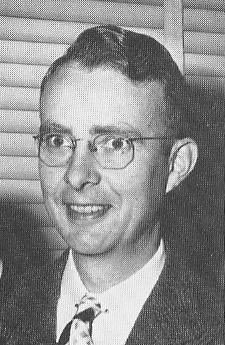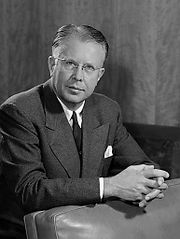First-Hand:Adventures at Wartime Los Alamos: Difference between revisions
No edit summary |
No edit summary |
||
| Line 20: | Line 20: | ||
<br> | <br> | ||
It is interesting that Alvarez in turn considered himself to be a disciple of Ernest Lawrence, now regarded as the founder of the "Big Science" trend during and after the War. Lawrence had a big hand in establishing and staffing the MIT radar lab, the Metalurgical Lab in Chicago, and Los Alamos. | It is interesting that Alvarez in turn considered himself to be a disciple of Ernest Lawrence, now regarded as the founder of the "Big Science" trend during and after the War. Lawrence had a big hand in establishing and staffing the MIT radar lab, the Metalurgical Lab in Chicago, and Los Alamos. | ||
Revision as of 13:10, 17 September 2008
Adventures at Wartime Los Alamos
Contributors: Lawrence Johnston, IEEE Life Fellow. Submitted on his behalf by the IEEE History Center Staff.
This article will discuss three major topics. First about how we experienced life in wartime Los Alamos. Second, the work we did on the Fat Man Implosion type of bomb, and third, the three wartime bomb events: the Trinity Test of the Fat Man bomb, and the job that took us to the Tinian Pacific base, and the delivery missions of the bombs to Japan - Hiroshima and Nagasaki.
When I say "we" I mean Luis Alvarez and me. Of course there were others involved. I was just out of Berkeley as a physics major when the War in Europe started (I was born in 1918), and I hitched the start of my career to this fascinating man, Alvarez.
It is interesting that Alvarez in turn considered himself to be a disciple of Ernest Lawrence, now regarded as the founder of the "Big Science" trend during and after the War. Lawrence had a big hand in establishing and staffing the MIT radar lab, the Metalurgical Lab in Chicago, and Los Alamos.

